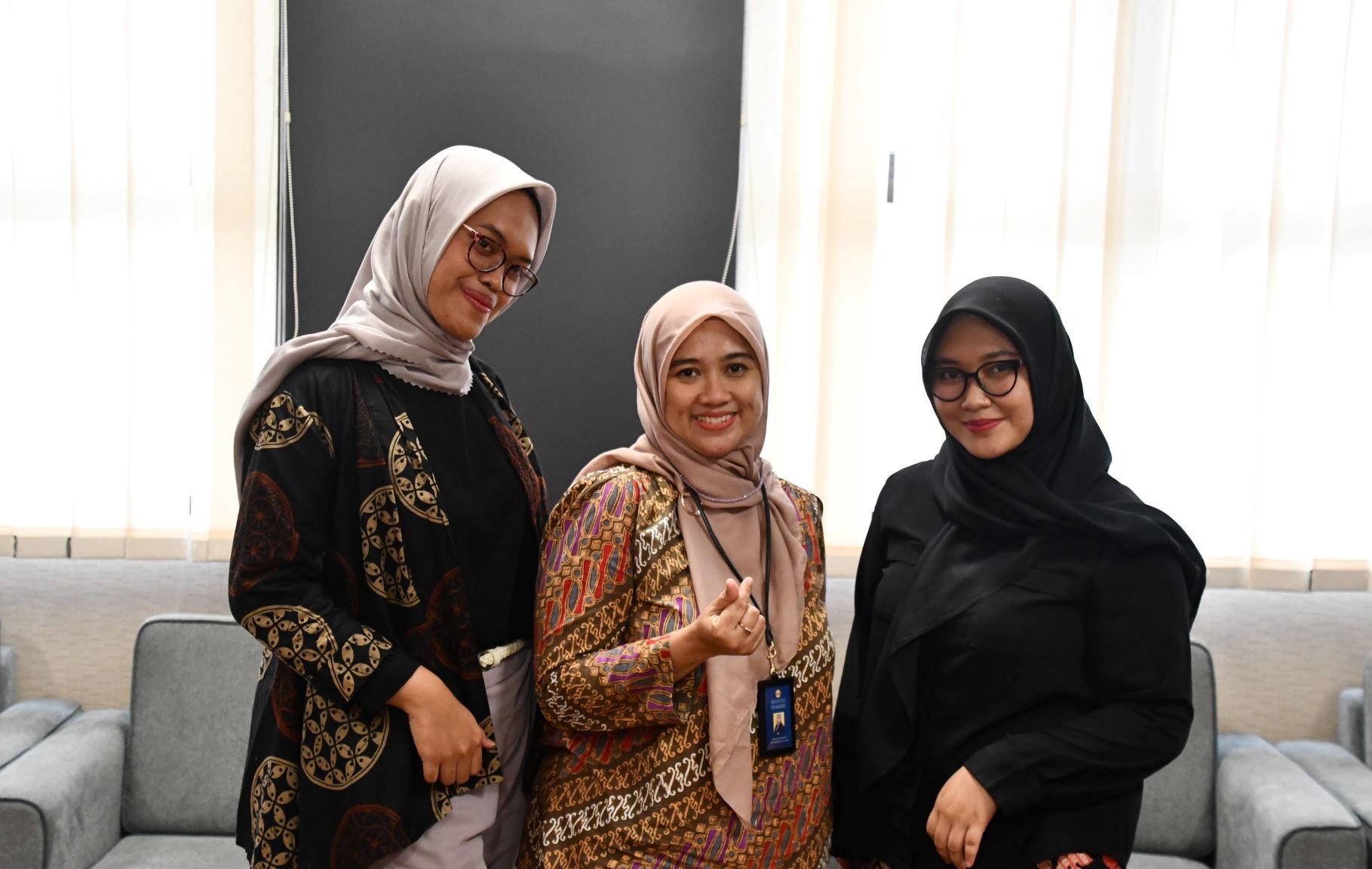|
Women in Science Mentoring Program (2020)
Association between burden of medicine and therapy adherence among multi-drug resistant tuberculosis patients in West Java, Indonesia
PI: Melisa Barliana, Universitas Padjadjaran
Project Dates: February 2022 - July 2023
Project Overview
 | | PI Prof. Dr. Med.Sc. Melisa Intan Barliana (middle) with her students, Indonesia, February 2023. Photo credit Lina Stankute Alexander (NAS) |
As the country with the second-highest tuberculosis burden in the world, Indonesia needs rigorous research and improved efforts in tuberculosis care, drug surveillance, drug development, diagnostics, and prevention. A rise in multi-drug resistant tuberculosis (MDR-TB) complicates efforts, as it requires prolonged therapy with medication with side effects that can lead to disability, limiting patient adherence.
The researchers in this project conducted a mixed-methods study about the burden of medication for MDR-TB in West Java, Indonesia. The quantitative study sought to analyze the burden of medicine among MDR-TB patients and the association of that burden on therapeutics adherence among MDR-TB patients. A qualitative study aimed to understand the factors MDR-TB patients perceived as a medication-related burden.
The PI also developed a mentorship component for project members, coaching them on academic writing and holding discussions on research design, quantitative data analysis, and qualitative study techniques.
Final Summary of Project Activities
All research was undertaken at the MDR-TB Clinics of Hasan Sadikin General Hospital, Bandung, a tertiary referral hospital in West Java. The study observed a major burden due to MDR-TB medication, even in adherent patients. While side effects of the medication were the most often complained about, lack of autonomy reached the highest burden score. Age and side effects were significantly associated with medication-related burden. However, perceived burdens and barriers were only one of five areas affecting how patients behave toward medication. The researchers assert that the health belief model (HBM), where burdens are determined by sociodemographic background and patient characteristics, explains why patients kept adhering to the therapy even though it was burdensome. The perceived benefit of taking medicine would counter the perceived burden, as well as perceptions about disease susceptibility and severity and external factors that may cause patients to adhere to treatment.
The team recommends that healthcare workers, especially pharmacists, can deliver better patient-centered care by collaborating with other care workers and better responding to and respecting patients. A pharmacist has the potential to provide meaningful improvement for MDR-TB patient care, as they have the knowledge to undertake intensive monitoring of drug side effects, counsel patients on the medication with empathy and emotional support, and educate patients on the disease, appropriate drug use, and management of side effects.
The team shared their findings in a seminar and published two review articles, and they have additional articles in review. Mentees in this project took part in poster presentations on this work and completed degrees and theses during the project period.
Publications
Melisa Intan Barliana, Nadiya Nurul Afifah, Vycke Yunivita, and Rovina Ruslami. 2023. Genetic polymorphism related to ethambutol outcomes and susceptibility to toxicity. Frontiers in Genetics 14:1118102. https://doi.org/10.3389/fgene.2023.1118102
Nurul Annisa, Melisa I. Barliana, Prayudi Santoso, and Rovina Ruslami. 2022. Transporter and metabolizer gene polymorphisms affect fluoroquinolone pharmacokinetic parameters. Frontiers in Pharmacology 13:1063413. https://doi.org/10.3389/fphar.2022.1063413
Back to WSMP Grant Recipients
|
|
|
|




